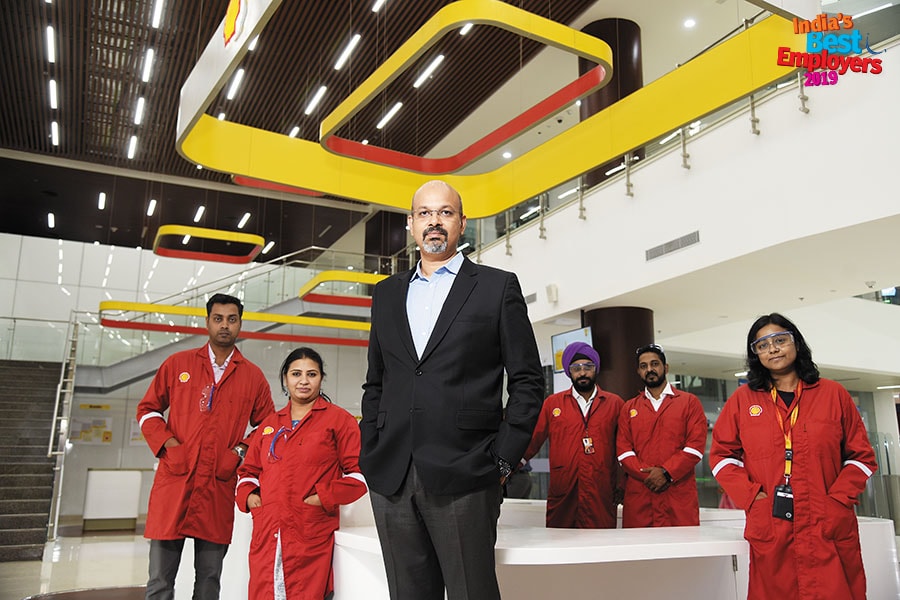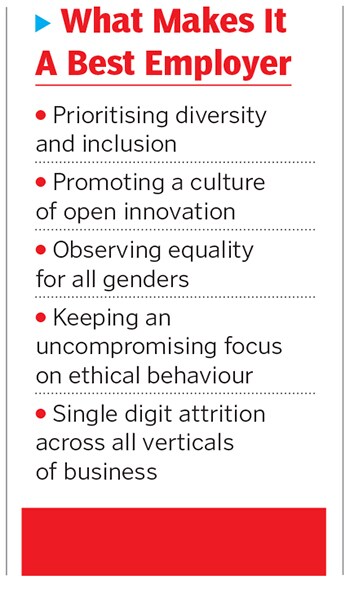How Shell India maintains a human touch
Shell India's inclusive culture sustains a diverse and engaged workforce


 Tarun Varma, vice president (HR), says Shell India is a purpose-led organization
Tarun Varma, vice president (HR), says Shell India is a purpose-led organization
Image: Hemant Mishra for Forbes India[br]In managing human resources, what may sometimes get overlooked is the human element. But Nitin Prasad, chairman of Shell in India, is not one to miss the larger picture.
Sample this. When asked what makes Shell one of the best employers in India, he says it’s the company’s 8,700 employees. Shell believes in collectively shaping a work environment that prioritises diversity and inclusion promotes a culture of open innovation observes equality for all genders and prioritises focus on ethical behaviour.
Prasad explains what it takes to be an employee-centric organisation: “We aim to bring about a change in the workplace by working on three key areas: Transformational leadership, authenticity and purpose.” It means focusing on developing transformational and collaborative leaders who can
manage and lead large teams of motivated, engaged employees and can engage a diverse set of stakeholders effectively.
The company also focuses on respecting and celebrating diversity, by encouraging employees to be part of dialogues on inclusiveness initiatives include Enable for differently abled colleagues, an LGBTQ network, the Shell India Women’s Network, and the Young Shell Network. “We believe that balance means business,” says Varma. Take, for instance, mentorship for women, reverse mentoring by young employees for senior leaders, sensitisation workshops on topics such as LGBTQ and differently abled employees.
Shell has an attrition rate that is in single digits, across different lines of business. Its compelling employee value proposition includes competitive pay and benefits, world-class learning and development and global career exposure, highly flexible work environment that’s safe, inclusive, unbiased and supportive.
Women comprise 29 percent of its workforce, with the company’s ‘Project Re-energize’ supporting women who want to restart a career with Shell after taking a break. Shell India Women’s Network, a supportive body to enable continuous learning at workplace for women, conducts mentoring circles, senior women engagements and other community-building activities.
Prakash Rao, founding member of PeopleStrong, a Gurugram-based HR technology and talent acquisition solutions company, lists five traits that make an organisation a preferred employer. Brand recall of the company, adequate learning opportunities, competitive compensation and benefits, conducive work culture and higher job responsibilities. “It’s a mix of all. It can’t be one over another,” he says.
The recognition of being a Best Employer comes with responsibility as well. But Prasad feels no pressure. “We are a purpose-led organisation and are focussed towards making a sustainable impact on society,” he says, adding that each employee at Shell feels connected to the organisation’s overall purpose. This makes the employees feel valued, gives them the freedom to express their personal purpose and one that they are proud to work for.
First Published: Aug 13, 2019, 10:51
Subscribe Now